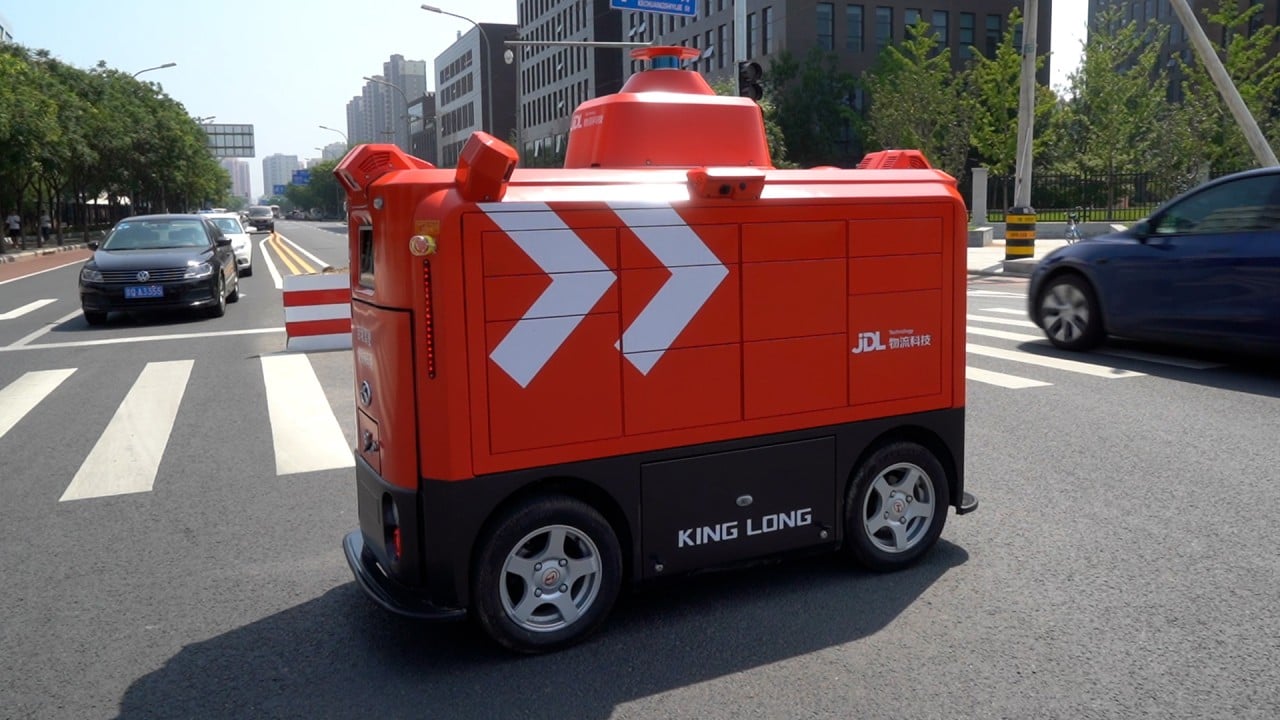
How to overhaul Hong Kong’s pandemic-hit logistics sector
- Unprepared for disruptions to supply chains, Hong Kong must shift from a ‘just-in-time’ to a ‘just-in-case’ strategy with the help of smart tech
- Digital and autonomous technology can improve communication and cooperation between supply chain nodes, while reducing dependency on human operators
Indeed, as a world-class city, Hong Kong’s logistics industry needs an overhaul. Crucially, it requires a mindset shift from “just-in-time” to “just-in-case”, which could be most aptly captured by the Chinese saying wèiyǔchóumóu – plan ahead, or prepare for a rainy day.
According to the 2021 census, the logistics and trading industry makes up around a fifth of the local economy, amounting to over HK$500 billion in GDP. Indeed, Hong Kong has long championed the global transportation of high value-added products.
Inspired by Toyota’s lean manufacturing practices after the second world war, the sector has for decades focused on cost above all else, which meant keeping minimum stock and flexible contracts to allow for an easy adjustment to fluctuating supply and demand.
Hong Kong must now be prepared to refine its just-in-time practice and lean more towards a just-in-case approach. This doesn’t simply mean increasing inventory storage, but also improving the ability to forecast crises and having a readily-available emergency plan in place.
While the just-in-time strategy has the merit of preventing overproduction and as such reduces waste, a more balanced approach between the two systems should be employed. It can be achieved through the implementation of smart technology.
This technology can also help the logistics industry to collaborate with and ensure timely communication between supply chain parties, while data analytics can ensure a more accurate forecast and better supply chain visibility.

Currently, our operations are still heavily overseen by humans. Hongkong Post’s recent announcement that it will no longer provide a local courier service or local parcel service due to pandemic restrictions illustrates that.
Hong Kong International Airport has taken some steps to innovate, introducing autonomous driving technology to increase operational safety and security as well as transport efficiency, with minimum human contact. Such projects should be extended citywide.
Meanwhile, FedEx Express has joined Chinese autonomous technology company Neolix to test the use of unstaffed delivery vehicles in mainland China. There is no reason Hong Kong should not explore the use of drones to deliver goods as a way to reduce human contact and tackle the “last-mile problem”.
Moreover, our city has all the ingredients to succeed in strengthening its multi-modal freight transport system between land, sea and air. While it has recently been overtaken by rival cities in air cargo and maritime transport, it still remains a key node in shipping and air networks.
Thanks to its strategic location, Hong Kong is within five hours’ flight time of most of Asia’s urban centres, connecting it with half the world’s population.
Furthermore, Hong Kong is still the main gateway to mainland China. In addition to the extensive road-based crossings between the city and the mainland, multiple flight depots around the Greater Bay Area enable a better relationship with cargo sources and facilitate the flow of goods via Hong Kong.

The implementation of a better-integrated and more responsive multi-modal transport communication system can revive Hong Kong’s logistics sector, maximising its future success.
Northern Metropolis could help Hong Kong step up as logistics hub
The industry must be more agile in the face of radical changes brought about by a more fragmented global supply chain and turbulent geopolitical landscape. With a mindset shift, citywide technological upgrade, and better synergy in its local, regional and global supply logistics, Hong Kong can provide not only just-in-time services for its own citizens, but just-in-case solutions for the world.
Neville Lai is an independent researcher on global affairs



